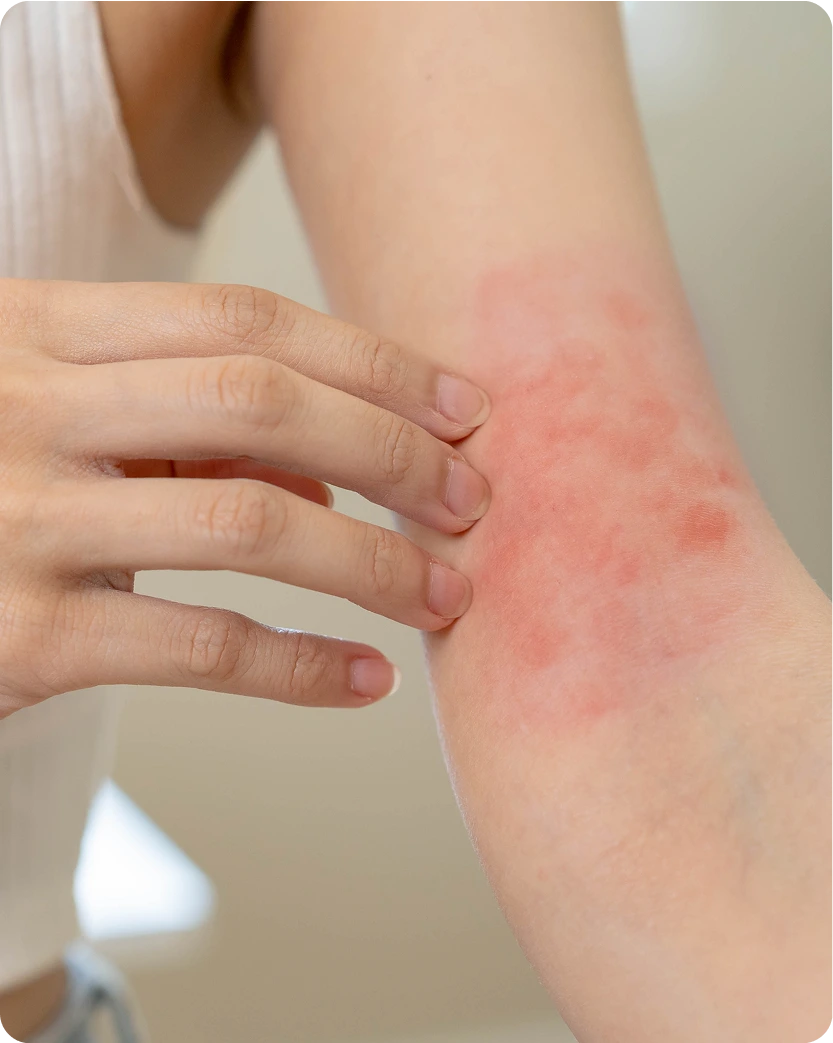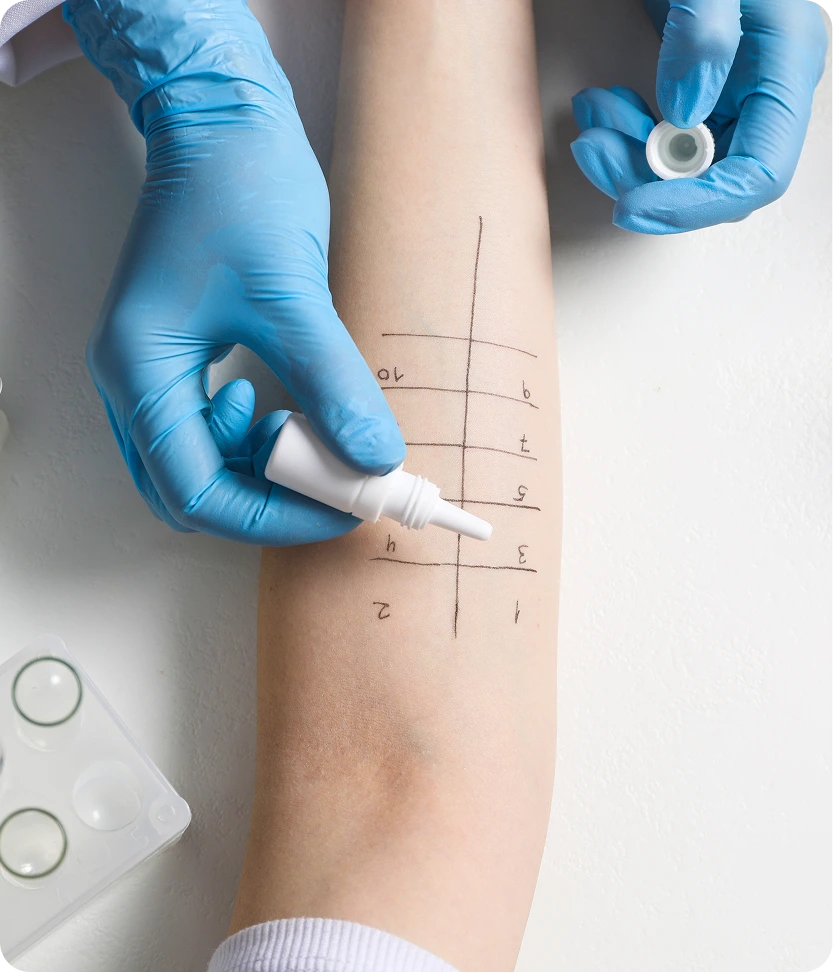
When you are stung by an insect, such as a bee, wasp, hornet, yellow jacket, or even some ants, these insects inject venom into your body.
For most people, an insect sting only causes redness, swelling, and itching. However, for patients with allergies to these insects, insect venom can cause severe, life-threatening reactions. An allergic reaction to an insect sting can involve your whole body and can start very rapidly after you are stung.
Possible symptoms include dizziness, nausea, weakness, stomach cramps, diarrhea, hives, itching, or wheezing. A more severe reaction can cause shortness of breath, a drop in your blood pressure, loss of consciousness, and even death if emergency medical treatment is not obtained immediately. People who have ever had a severe reaction to a stinging insect should be seen by an allergy specialist.
Antihistamines can help manage the milder symptoms of an insect sting allergy, such as itching, hives, or localized swelling. Your allergist may recommend taking them after a sting to reduce discomfort and prevent the reaction from worsening. While they are not a substitute for emergency treatment with an epinephrine injector in severe reactions, antihistamines are a helpful part of an overall management plan to keep symptoms under control and improve daily comfort for patients with insect sting sensitivities.
If you or someone you know has ever had a life-threatening reaction to a stinging insect, they should be seen by an allergist as soon as possible.

The length of treatment for insect sting allergies can vary depending on the severity of your reactions and your individual health needs. Patients follow a structured plan that gradually builds tolerance through allergy shots, which often requires regular visits over several months to years. For many, it is normal to start noticing improvement after the first few months, though full protection can take longer. Throughout the process, your allergist will monitor your progress and address any concerns, adjusting your treatment plan as needed to ensure both safety and effectiveness.

The cost of treating insect sting allergies in San Mateo can vary depending on several factors. Your individual treatment plan, including the type and frequency of allergy shots, as well as any necessary follow-up visits, all play a role. Insurance coverage and the specific services recommended by your doctor’s office may also influence the overall cost.
Schedule a consultation at the Allergy & Asthma Clinic today to receive personalized price quotes. You can book an appointment on our site or call us directly at (650) 991-0405

Environmental Allergies
Skin allergies
Other CommonAllergies
Nose & Sinus Allergies
Allergy Shots
Allergy Medications
Lifestyle Changes

First and foremost let me start by saying that these people did one hell of a job figuring out my sinus problems. When I first arrived there, I explained what was going on with me having excessive inflammation in the sinus…after they tested me, I found out that I was being exposed to dust mites which gave me a strong reaction. I followed the doctors guides lines in terms of cleaning my room and ever since, my sinus inflammation went away for good and now I have a healthy sinus. Thank you for everything.


My 10 year old son also has allergies and asthma and the staff makes sure that he feels well taken care of and comfortable, despite his having Autism and ADHD. He actually looks forward to going there with me, whether it be for my allergy shots or even when he needed allergy skin testing. When you’re a patient at the Allergy and Asthma clinic, you are treated as if you are the only patient they have, even when the waiting room is full. Dr. Engler has hired truly excellent staff, from the front desk people to the nurses and medical assistants. If you have allergies and/or asthma and you live on the Peninsula or even in the city, I highly recommend that you visit the Allergy and Asthma Clinic. They are truly amazing and will make you feel so much better.

